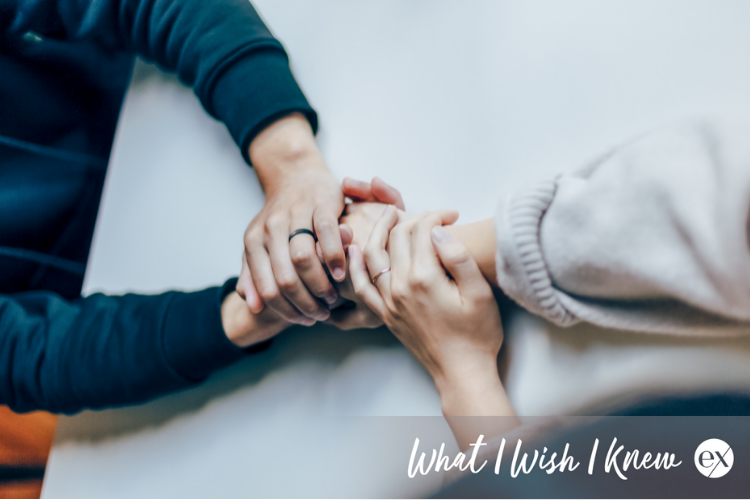
I often think about all the stigma that women face every day, especially when it comes to getting divorced or ending a marriage – and particularly the differences in those stigmas for women versus for men. Society has different expectations of us, and women always need to have it all together or else we seem unstable. If for some reason she’s crying or yelling, a woman is totally labeled as just being hysterical or insane. But if a man is upset, he’s just expressing himself. He can quickly go back into this normal state and the behavior is just accepted, whereas for women, we’re labeled, and that’s something we have to carry.
The reality of it is it’s a stereotype. Going through the level of trauma that ending a relationship can create can be identified as a mental health issue. Whether it’s a time specific one or whether it ends up being something you carry with you, men and women tend to get labeled differently. I actually think that at the end of the day, we women have a double stigma, because not only are we dealing with that hysterical female label that’s being put on us, but then the secondary label is that it’s not okay to have mental health needs and to seek support for them. Women really carry this double whammy and it follows us through the divorce process. Men tend to deny the signs or any signals that they may be experiencing some mental health issues, since they know that there is a stigma in our country connected to it.
As women we need to begin having more conversations around the things that hold us back or bring us shame in general. I think that’s the beauty of platforms like the exEXPERTS podcasts. Women don’t always get to talk about these issues, and if they are talking about them, it’s possibly just with their inner circle. And that circle may or may not have had the same experience they had. They may need guidance about something that they’re not able to connect or empathize with.
I was lucky in my experience going through my own divorce that I had a very close friend who completely supported me. She’s a social worker herself, and I’m a social worker by training, and we shared many pivotal moments together. It was through her insight that I knew I needed to get some help to get me through such a difficult time. Fortunately, because I loved her and trusted her, and she had been through the same experience, I was able to hear her. I resisted for a little bit, but eventually I was able to understand. She was saying things that resonated with me, so that helped propel me to a place of healing – actually, propelled me to a place of getting on the path of healing. I think that it had everything to do with someone else telling me that this was the hand I was dealt, that what I was feeling was normal and that I needed to take action and control of my situation in order to move forward.
On top of the emotional issues we are trying to combat during a divorce, society adds other social constructs to the mix. As women we are usually considered fixers. We are, just by the very nature of our gender, considered to be fixers, helpers, caring and supportive. When something goes wrong, the fixer is clearly the one that wasn’t able to fix it, so we’re at fault there. I think you take all those social constructs of the hysterical female, and you layer all of these on top of each other, and it can all add up to a difficult and emotional situation.
And then of course there is the whole double standard – which we all see as women – in both our personal lives and in business. Since the norms and expectations of women leaders can sometimes be very blurry, it just makes sense that it would be the same for our role in a marriage. As a female CEO, my actions are different than my male counterparts. I may likely be seen as a bitch for taking a strong stance on something where a man would be seen as assertive. It’s really no different. If a woman stands up for herself in a marriage and says, “you know what? This isn’t working for me. I’m not tolerating this behavior anymore, and I’m moving on”, they’re seen as aggressive and difficult, when the reality is that they’re just showing their self-worth. Every day we’re just fighting these gender stereotypes that exist and all the social constructs around women.
In my opinion, women need to continuously lift each other up. It’s great that there are communities like exEXPERTS, this podcast and my agency the YWCA to be able to do that, and that we can work together to create a safety net to be able to catch us all. We all have down moments, and we just need that net to help us bounce back up. We can do it together.
Leave a Comment
You must be logged in to post a comment.










